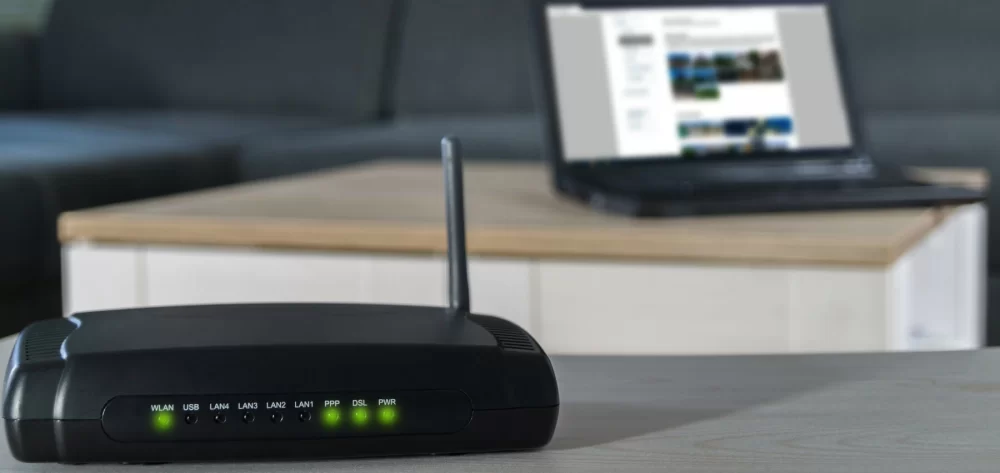Which Internet speeds can I choose from?
Many Swiss Internet service providers try to differentiate themselves by advertising the Internet connection speeds of their Internet plans. Many service providers offer several different Internet plans with different speeds for that reason. The choice of Swiss Internet plans is large and ranges from plans with just a few Mbps of bandwidth to plans with speeds reaching many Gbps. Choosing the right plan for your needs can be difficult.
Some Internet plans have download speeds which are substantially faster than their upload speeds. But an increasing number of Internet plans with symmetrical speeds are now available. With symmetrical Internet plans, uploads are performed at the same speed as downloads. Symmetrical speeds are particularly common among Internet plans which use optical fiber connections.
Where can I find out which Internet plans are available?
The unbiased Internet plan comparison on moneyland.ch accounts for all the different bandwidth models for each plan. To avoid swamping you with hundreds of different offers, the comparison only shows Internet plan offers which match your needs.
You can choose between low-speed, mid-speed, high-speed and ultra-high speed broadband Internet profiles. You also have the option of specifying a minimum download speed.
The product information pages on moneyland.ch clearly show all bandwidth models for the plan in question.
Will I actually connect at the advertised Internet speed?
In many cases, you will not actually be able to use the Internet at the speed advertised for your Internet plan.
In the case of very fast Internet plans with hundreds of Mbps or even a Gbps or more of bandwidth, users often do not benefit from the fastest possible speeds. In practice, Internet servers generally transfer data to users at around 300 Mbps.
Many home computers and devices now support speeds of up to 1 Gbps. Connecting at faster speeds requires special hardware which is normally only used for data centers and in other professional environments.
What factors determine the optimal Internet speed?
What you use the Internet for is the most important factor when choosing the optimal Internet speed. Hardly any bandwidth is needed to use messaging apps or browse Wikipedia, but larger bandwidths are a must for streaming videos.
The number of people who share one Internet connection is also a key factor. A household with several Internet users generally needs more bandwidth than a one-person household. Also consider that anyone who uses your Wi-Fi connection is cutting into your Internet connection’s bandwidth.
Is there a rule of thumb for choosing the right Internet speed?
There is no definitive rule. But there are general recommendations which can serve as a guideline.
For a small household with one or two people, an Internet plan with a 10 Mbps connection speed will normally suffice. This is true as long as you do not stream more than one video which does not exceed high definition (HD) quality at the same time, and do not perform any tasks more data-intensive than web browsing or reading something online at the same time.
For a small household which regularly streams multiple videos in HD quality simultaneously, an Internet plan with a 30 to 50 Mbps connection speed is recommended. This may be the case if your household has multiple devices like smartphones, tablets or television sets on which video is streamed at the same time.
Larger households, roommates and families with children often need faster Internet connections. A minimum connection speed of 200 Mbps is recommended.
How much bandwidth do different tasks use?
Different online activities require different amounts of bandwidth. In practice, the actual speeds required vary substantially depending on the technology used.
- Text messaging (via WhatsApp, for example) requires very low bandwidth of around 0.05 Mbps.
- Emails without large attachments work fine on slow connections.
- For browsing web pages consisting mostly of text (like Wikipedia or news sites), a slow Internet connection is sufficient.
- Streaming Internet radio, using music streaming services like Spotify, and making voice over IP (VOIP) phone calls typically requires a connection speed of 0.06 to 0.4 Mbps.
- Streaming video (from Netflix, YouTube or media libraries, for example) requires more bandwidth. Ideally, you should use a connection with at least 5 to 10 Mbps to stream HD video.
- Streaming videos with ultra-high definition (UHD) or 4K resolutions requires much more bandwidth. Depending on the video format, you need a minimum of between 25 and 60 Mbps per video stream.
- If you frequently download large files (like videos or games), getting the fastest possible Internet connection is recommended. The faster the connection, the faster your files will download to your device.
How much bandwidth do I need to watch Netflix?
Netflix recommends a minimum connection speed of 3 Mbps for standard definition (SD) videos, 5 Mbps for HD videos and 25 Mbps for UHD/4K videos.
In practice it makes sense to get an Internet plan which has double the minimum recommended bandwidth. Netflix automatically reduces required bandwidth when your Internet connection is slow. This may result in poor video quality.
How much bandwidth do I need to run a home office?
That depends which applications you use in your home office. Common office applications do not normally require a fast Internet connection. Architects, photographers, video editors, and other professionals who work with data-intensive applications often need high-speed Internet connections.
How you work from home is a key factor. Currently, many home office jobs fall into one of three categories.
- Most of your work is done on your home office computer, possible in combination with cloud-based services. High-speed Internet is not necessary. 10 Mbps of bandwidth is generally sufficient.
- You use VPN software to connect to your company’s network. Here too, 10 Mbps is generally sufficient.
- You use remote access software to control and work on your office computer remotely from your home computer. Using a fast Internet connection is beneficial. Because the content of your office computer’s display is constantly transmitted in real time, large amounts of data are transferred.
An important point to consider is that many companies hold video conferences (with Zoom, Google Meet or Microsoft Teams, for example). Providers of HD video conferencing services recommend a bandwidth of at least 2 or 3 Mbps. But a faster connection will generally deliver better results. The upload speed is an important factor for video conferencing.
How much bandwidth do I need for gaming?
With purely online games, there are major variables in the speeds required. Online card games or Sudoku, for example, hardly need any bandwidth at all. Games for which motion picture is streamed, on the other hand, require more bandwidth. A connection speed of at least 10 Mbps is required for playing HD online games. UHD/4K games require a connection of at least 25 to 60 Mbps. These speeds are required for both uploads and downloads.
Some games must be downloaded to your device before you can play them. The files making up these games can be very large. Depending on the game, you may have to download as much as 100 gigabytes of data in order to set up the game. A high-speed Internet connection works best for this kind of gaming.
How important are upload speeds?
Today, many Swiss Internet plans have identical upload and download speeds.
Fast uploads speeds are important if you frequently transfer data from your devices over the Internet. For example, when you post pictures to Instagram, upload videos to YouTube, participate in video calls or conferences, or play online games, data is transferred from your devices to other devices or servers.
Why not just get the fastest Internet plan available?
Many Internet service providers offer several different versions of their Internet plans – each with a different speed. With some service providers, the faster an Internet plan is, the more it costs.
The experience of moneyland.ch telecom expert Ralf Beyeler shows that many customers get much faster home Internet connections than they actually need. Because of this, many consumers pay much more than necessary for their Internet plans.
If you are not sure how much bandwidth you actually use, starting with a slower plan is recommended. You can always upgrade to a faster plan if your connection ends up being too slow for your needs.
Before you switch to a faster Internet plan, check your Wi-Fi connection and optimize it if necessary. In many cases, the reason the Internet is slow on your device is not because your Internet plan does not have enough bandwidth, but because your home’s Wi-Fi network is not properly set up.
Another common cause of slow Internet is overloading of Internet service providers. If your Internet service provider’s network is overloaded, getting a faster Internet plan from the same provider will not result in faster effective Internet speeds.
Surprising but true: Some service providers charge more for their slower Internet plans than for their faster plans.
How can I find out how fast my Internet connection is?
There are a number of websites which offer speed test services. You can use these speed test services to find the current speed of your Internet connection in a few clicks. You can find links to speed tests on the websites of Swiss telecom service providers like Swisscom, UPC, Sunrise, Quickline and Teleboy.
Which other factors can affect Internet speeds?
There are a number of factors which influence your Internet connection experience.
Latency is one of these factors. Low latency is particularly important for phone calls, video conferences and video streaming. Latency is the delay caused by the time it takes to transfer and process data. Data is transferred over many different routers and servers before it finally makes its way to your device. Latency varies depending on the service providers and the technology used (like copper phone lines or optical fiber) across the process.
It is also important that your Internet service provider itself is well connected. Internet service providers have to enable simultaneous connections with a huge amount of Internet servers. To accomplish this, they have to be connected with other Internet service providers and data centers. Major Internet service providers like Swisscom, in particular, have a reputation for being somewhat poorly connected to the Internet. Init7 has direct connections (peering) to many Internet servers, and has established a reputation for fast Internet.
What are Mbps and Gbps?
The speeds of Internet connections are measured in bits per second (bps). A bit is the smallest digital data unit. A single letter of the alphabet on a screen is made up of 8 bits of data. So, an Internet connection with a maximum speed of 1 megabit per second (Mbps) can transfer around 125,000 text characters in one second.
Today the amounts of data being transferred are much larger than they were in times past, so data transfer speeds are commonly measured in Mbps or in Gbps (billion bits per second).
Tip: The download calculator on moneyland.ch makes it easier to calculate data transfer requirements.
More on this topic:
Guide to Internet technologies used in Switzerland
Compare Swiss Internet plans now
How to choose the right mobile Internet connection speed





